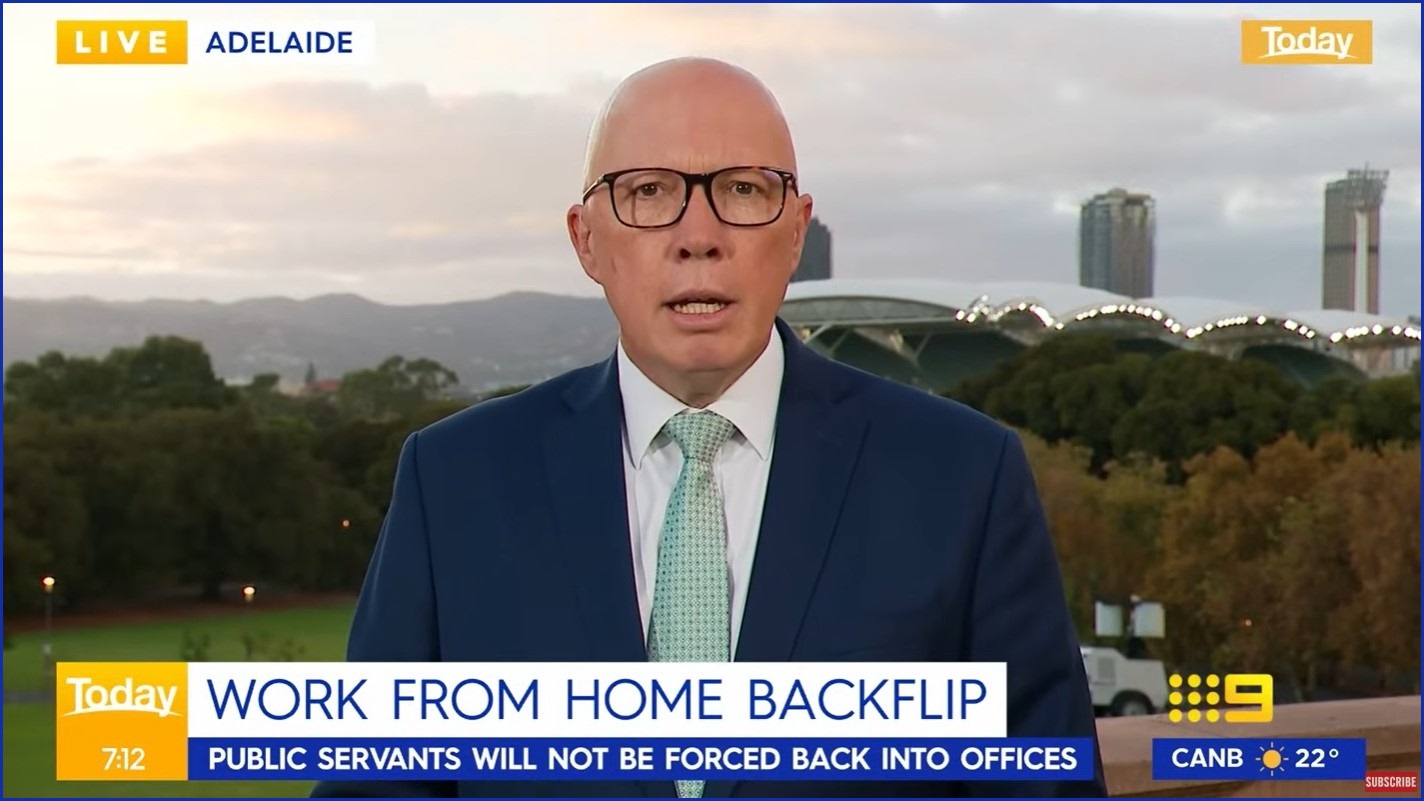The Coalition has backflipped on plans to force public servants back to the office, just a month after labelling this a “common sense policy”.
Opposition Leader Peter Dutton admitted on Monday morning that the plan to require public servants to work full-time from the office was a “mistake” and asked for forgiveness from female voters.
"We've made a mistake in relation to the policy. We apologise for that. And we've dealt with it," he said.
When asked if the policy was unpopular with female voters, Dutton dodged the question simply repeated, “We got it wrong and we have apologised for it.”
In early March, Dutton and shadow finance spokesperson Jane Hume revealed that if the Coalition wins the May election, work from home arrangements in the Australian Public Service would end, with public servants required to attend an office every working day.
This would end flexible work arrangements secured in a 2023 union agreement, which requires work from home requests to be approved by default.
At the time, Hume said work from home in the APS was “creating inefficiency” and that this was a “common sense policy”.
But the plan was slammed by Labor and major unions for copying a similar move by US President Donald Trump and for its potential impact on women in particular.
It has also created a perception among voters that the Coalition will target working from home across the broader workforce if it wins government.
Prime Minister Anthony Albanese quickly threw his support behind working from home in response and labelled Dutton “out of touch” for campaigning against it.
Labor also released modelling showing it could cost Australians up to $5,000 per year in commuting costs if they are required to return to the office.
Policy U-turn
It was confirmed on Monday morning that the Coalition had taken a mid-election about-face and would no longer be fighting work from home in the public service.
Dutton said that he was “listening to what people have to say” about the issue, and when asked if he was asking for forgiveness from female voters, he said, “I think I am today”.
The Opposition leader also said Labor had run a scare campaign on the issue.
“We never had any intention for work from home changes that we were proposing in Canberra to apply across the private sector, but the Prime Minister was out there saying that,” Dutton told The Today Show on Monday morning.
“It was just a lie…we’ve made a mistake in relation to the policy. We apologise for that.”
Just weeks after announcing the policy, Hume on Monday said the reversal was made after the Coalition listened to the feedback.
“We’ve listened to feedback from right around the country, not just Canberra-based public servants…who are telling us that flexible work is something that they would like to see enshrined,” Hume said.
“Flexible work was always here to stay. But what our concern now is that part of that flexible work should also be an ability to work from home where it’s appropriate to do so, and that hasn’t changed.”
‘Worse facelift in Australian history’
Government leaders were quick to attack Dutton and the Coalition over the policy reversal.
Employment Minister Murray Watt said Dutton was in the “process of giving himself the worst facelift in Australian history” to position himself as supporting work from home, while Prime Minister Anthony Albanese said, “this is a new Peter Dutton who’s discovered work rights”.
Albanese said that Dutton has previously opposed broader work from home access, ‘same job, same pay’ laws and the right to disconnect.
“He’s campaigned against them each and every day, and today he’s pretending…he’s pretending that the policies that he announced, including in the budget reply that was two weeks ago, including the cuts to 41,000 public servants just don’t exist, and everyone will just forget about all that,” Albanese said.
The Coalition also appeared to be walking back from its plan to cut 41,000 jobs in the public service, with Dutton saying over the weekend that this will take place over five years through natural attrition and hiring freezes, and will not involve any forced redundancies.










